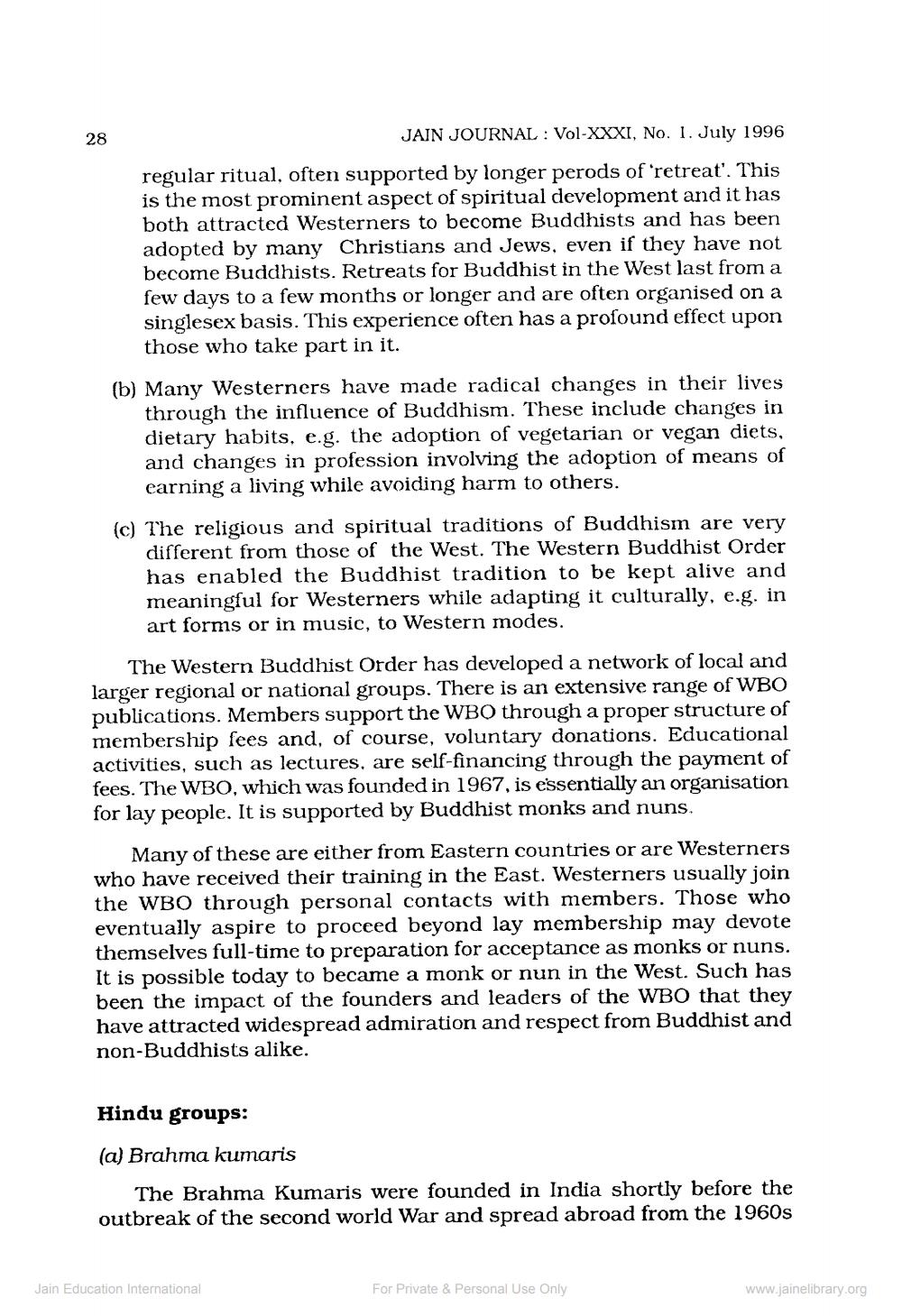________________
28
JAIN JOURNAL: Vol-XXXI, No. 1. July 1996
regular ritual, often supported by longer perods of 'retreat'. This is the most prominent aspect of spiritual development and it has both attracted Westerners to become Buddhists and has been adopted by many Christians and Jews, even if they have not become Buddhists. Retreats for Buddhist in the West last from a few days to a few months or longer and are often organised on a singlesex basis. This experience often has a profound effect upon those who take part in it.
(b) Many Westerners have made radical changes in their lives through the influence of Buddhism. These include changes in dietary habits, e.g. the adoption of vegetarian or vegan diets, and changes in profession involving the adoption of means of earning a living while avoiding harm to others.
(c) The religious and spiritual traditions of Buddhism are very different from those of the West. The Western Buddhist Order has enabled the Buddhist tradition to be kept alive and meaningful for Westerners while adapting it culturally, e.g. in art forms or in music, to Western modes.
The Western Buddhist Order has developed a network of local and larger regional or national groups. There is an extensive range of WBO publications. Members support the WBO through a proper structure of membership fees and, of course, voluntary donations. Educational activities, such as lectures, are self-financing through the payment of fees. The WBO, which was founded in 1967, is essentially an organisation for lay people. It is supported by Buddhist monks and nuns.
Many of these are either from Eastern countries or are Westerners who have received their training in the East. Westerners usually join the WBO through personal contacts with members. Those who eventually aspire to proceed beyond lay membership may devote themselves full-time to preparation for acceptance as monks or nuns. It is possible today to became a monk or nun in the West. Such has been the impact of the founders and leaders of the WBO that they have attracted widespread admiration and respect from Buddhist and non-Buddhists alike.
Hindu groups:
(a) Brahma kumaris
The Brahma Kumaris were founded in India shortly before the outbreak of the second world War and spread abroad from the 1960s
Jain Education International
For Private & Personal Use Only
www.jainelibrary.org




